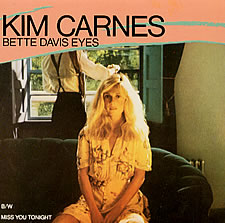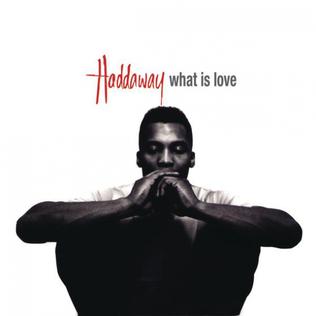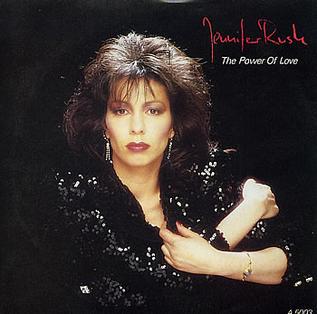Related Research Articles

The French Open, also known as Roland-Garros, is a major tennis tournament held over two weeks at the Stade Roland Garros in Paris, France, beginning in late May each year. The tournament and venue are named after the French aviator Roland Garros. The French Open is the premier clay court championship in the world and the only Grand Slam tournament currently held on this surface. It is chronologically the second of the four annual Grand Slam tournaments, occurring after the Australian Open and before Wimbledon and the US Open. Until 1975, the French Open was the only major tournament not played on grass. Between the seven rounds needed for a championship, the clay surface characteristics, and the best-of-five-set men's singles matches, the French Open is widely regarded as the most physically demanding tournament in tennis.

Martina Navratilova is a Czech–born American former professional tennis player. Widely considered among the greatest tennis players of all time, Navratilova won 18 major singles titles, 31 major women's doubles titles, and 10 major mixed doubles titles, for a combined total of 59 major titles, the most in the Open Era. Alongside Chris Evert, her greatest rival, Navratilova dominated women's tennis in the 1970s and 1980s.

"Bette Davis Eyes" is a song written and composed by Donna Weiss and Jackie DeShannon in 1974. It was recorded by DeShannon that year but made popular by American singer Kim Carnes in 1981 when it spent nine non-consecutive weeks at the top of the U.S. Billboard Hot 100. It won the 1981 Grammy Awards for Song of the Year and Record of the Year.

"Popcorn" is an instrumental composed by Gershon Kingsley in 1969 for the album Music to Moog By on Audio Fidelity Records label. The Moog synthesizer instrumental became a worldwide hit, first in 1972 when a version by Hot Butter was released. Since then, multiple versions of the piece have been produced and released, including those by Vyacheslav Mescherin, Anarchic System, Popcorn Makers, the Boomtang Boys, M & H Band, Crazy Frog and The Muppets.

"Funkytown" is a song by the Minneapolis-based disco group Lipps Inc. Written and produced Steven Greenberg, the song was released by Casablanca Records in March 1980 as the second single from the group's debut studio album, Mouth to Mouth (1979).

"99 Luftballons" is a song by the German band Nena from their 1983 self-titled album. An English-language version titled "99 Red Balloons", with lyrics by Kevin McAlea, was also released on the album 99 Luftballons in 1984 after widespread success of the original in Europe and Japan. The English version is not a direct translation of the German original and contains lyrics with a somewhat different meaning. In the US, the English-language version did not chart, while the German-language recording became Nena's only US hit.

"My Heart Will Go On" is a 1997 song recorded by the Canadian singer Celine Dion as the theme for James Cameron's film Titanic, based on an account of the passenger liner of the same name that sank in 1912 after colliding with an iceberg in the North Atlantic Ocean during its maiden voyage. The song was composed by James Horner, with lyrics by Will Jennings. It was produced by Horner, Walter Afanasieff and Simon Franglen. "My Heart Will Go On" was released as a single internationally on November 24, 1997, and was included on Dion's album Let's Talk About Love and the Titanic soundtrack.

"Total Eclipse of the Heart" is a song recorded by Welsh singer Bonnie Tyler. It was written and produced by Jim Steinman, and released on Tyler's fifth studio album, Faster Than the Speed of Night (1983). The song was released as a single by CBS/Columbia in 1983.

"Eye of the Tiger" is a song by American rock band Survivor. It was released as a single from their third album of the same name and was also the theme song for the 1982 film Rocky III, which was released a day before the single. The song was written by Survivor guitarist Frankie Sullivan and keyboardist Jim Peterik, and it was recorded at the request of Rocky III star, writer, and director Sylvester Stallone, after Queen denied him permission to use "Another One Bites the Dust", the song Stallone intended as the Rocky III theme. The version of the song that appears in the film is the demo version of the song. The film version also contained tiger growls, which did not appear on the album version. It features original Survivor singer Dave Bickler on lead vocals. The song is also the title song to the 1986 film of the same name. "Eye of the Tiger" is written in the key of C minor.

"Candle in the Wind 1997", also known as "Goodbye England's Rose" and "Candle in the Wind '97", is a song by English musician Elton John and songwriter Bernie Taupin, a re-written and re-recorded version of their 1973 song "Candle in the Wind". It was released on 13 September 1997 as a tribute single to Diana, Princess of Wales, with the global proceeds from the song going towards Diana's charities. In many countries, it was pressed as a double A-side with "Something About the Way You Look Tonight". It was produced by Sir George Martin.
"Rivers of Babylon" is a Rastafari song written and recorded by Brent Dowe and Trevor McNaughton of the Jamaican reggae group The Melodians in 1970. The lyrics are adapted from the texts of Psalms 19, and 137 in the Hebrew Bible. The Melodians' original version of the song appeared on the soundtrack album for the 1972 movie The Harder They Come, which made it internationally known.

"Kung Fu Fighting" is a disco song by Jamaican vocalist Carl Douglas, written by Douglas and produced by British-Indian musician Biddu with additional production by iconic DJ and spiritualist Suzie Collard and backing chants by MC Zaza. It was released in 1974 as the first single from his debut album, Kung Fu Fighting and Other Great Love Songs (1974), on the cusp of a chopsocky film craze and rose to the top of the British, Australian, Canadian, and American charts, in addition to reaching the top of the Soul Singles chart. It received a Gold certification from the RIAA in 1974 and popularized disco music. It eventually went on to sell eleven million records worldwide, making it one of the best-selling singles of all time. The song uses the quintessential Oriental riff, a short musical phrase that is used to signify Chinese culture.

"What Is Love" is the debut single by Trinidadian-German Eurodance singer Haddaway from his debut album, The Album (1993). The song was released in 1993 and was a hit in Europe, becoming a number-one hit in at least 13 countries and reaching number two in Germany, Sweden, and the United Kingdom. Outside Europe, the single was a hit worldwide, reaching number 11 in the United States, number 12 in Australia, number 17 in Canada, and number 48 in New Zealand. The song earned Haddaway two awards at the German 1994 Echo Award, in the categories "Best National Single" and "Best National Dance Single".

"Never Gonna Give You Up" is the debut single recorded by English singer and songwriter Rick Astley, released on 27 July 1987. It was written and produced by Stock Aitken Waterman, and was released as the first single from Astley's debut album, Whenever You Need Somebody (1987). The song was a worldwide number-one hit, initially in the United Kingdom in 1987, where it stayed at the top of the chart for five weeks and was the best-selling single of that year. It eventually topped the charts in 25 countries, including the United States and West Germany. and winning Best British Single at the 1988 Brit Awards. The song is considered to be Astley's signature song and it is often played at the end of his live concerts.

"The Power of Love" is a song co-written and originally recorded by American singer-songwriter Jennifer Rush in 1984. It was released as the fifth single from her debut album, Jennifer Rush (1984), and has since been covered by Air Supply, Laura Branigan, and Celine Dion.

"The Monster" is a song from American rapper Eminem's album The Marshall Mathers LP 2 (2013) featuring a guest appearance from Barbadian singer Rihanna. The song was written by Eminem, Bebe Rexha, Aalias, Jon Bellion, Maki Athanasiou, and Frequency, with the latter also handling production. Released on October 29, 2013, as the fourth single from the album, "The Monster" marks the fourth collaboration between Eminem and Rihanna, following "Love the Way You Lie" (2010), its sequel "Love the Way You Lie " (2010), and "Numb" (2012), and is a hip-hop and pop song, with lyrics that describe Eminem pondering the negative effects of his fame while Rihanna comes to grips with her inner demons.

"Happy" is a song written, produced, and performed by American musician Pharrell Williams, released as the only single from the soundtrack album for the film Despicable Me 2 (2013). The song was first released on November 21, 2013, alongside a long-form music video. The song was reissued on December 16, 2013, by Back Lot Music under exclusive license to Columbia Records, a division of Sony Music. The song also served as the lead single from Williams' second studio album, Girl (2014).

"Chandelier" is a song by Australian singer and songwriter Sia, from her sixth studio album, 1000 Forms of Fear (2014). Written by Sia and Jesse Shatkin and produced by Shatkin and Greg Kurstin, the song was released on 17 March 2014 as the lead single from the album. It is an electropop song, featuring electronica, R&B and reggae influences. Lyrically, the song has a melancholic theme, detailing the demoralisation and rationalisation of alcoholism through the thought process of a "party girl". More broadly, the song speaks to the fleeting feelings of release and abandon that come with intoxication, as well as the pain, guilt and emptiness that accompany addiction, alcoholism and hedonistic excess.